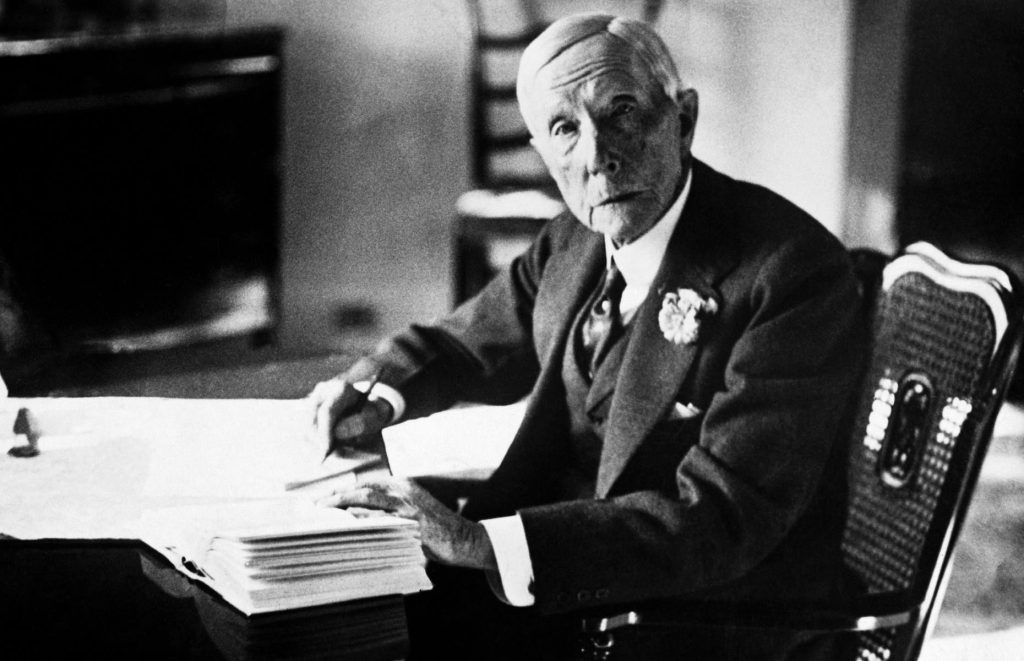John D. Rockefeller, an iconic figure in American history, is best known as the co-founder of the Standard Oil Company, which played a pivotal role in the development of the petroleum industry and shaped the modern economy. However, beyond his remarkable business acumen, Rockefeller’s legacy is profoundly marked by his charitable contributions and philanthropic endeavors, which have had lasting impacts on society across various fields, including health, education, and scientific research.
Born on July 8, 1839, in Richford, New York, Rockefeller emerged from humble beginnings. His early life, characterized by modest resources, instilled in him a strong work ethic and a sense of discipline. His thirst for knowledge and self-improvement led him to pursue opportunities that would ultimately converge into a successful career in the oil industry. By revolutionizing the oil refining process and creating efficiencies in production and distribution, Rockefeller transformed Standard Oil into a dominant force, ultimately leading to innovations that would lower costs and make oil accessible to the masses.Despite often being viewed through the lens of corporate capitalism and monopolistic practices, Rockefeller’s contributions to society extend well beyond business. Following the major successes of Standard Oil, he recognized the importance of giving back and established a legacy of philanthropy that still resonates today.
In 1913, he founded the Rockefeller Foundation, which aimed to promote the well-being of humanity. Through this foundation, he made significant investments in public health, education, and scientific research. For instance, the foundation played a crucial role in combating diseases such as yellow fever and hookworm, significantly improving health conditions in affected regions.Moreover, Rockefeller’s commitment to education led to the establishment and funding of various educational institutions, including the University of Chicago and Rockefeller University. His belief that education is fundamental to societal progress ensured that generations of students benefited from the resources and opportunities made available through his generosity.
Rockefeller’s influence extended beyond the continental United States, as he also formed a significant relationship with Bermuda. The island became a cherished retreat for the Rockefeller family, marked by idyllic landscapes and tranquil surroundings. In the early 20th century, Rockefeller purchased a private estate called “The Reef” (Not the hotel) in Bermuda, where he often escaped from the pressures of his business life. This estate served as a haven for relaxation and reflection, allowing him to connect with nature and recharge.
Through his love for Bermuda, Rockefeller not only enjoyed the natural beauty of the island but also demonstrated his commitment to environmental conservation. His appreciation for Bermuda’s unique ecosystem echoed his broader philanthropic vision of promoting sustainability and preserving natural resources. Although his time in Bermuda was more personal, it became a part of the narrative of his legacy as a man who sought solace in nature and understood the importance of protecting it.
One of Rockefeller’s most significant contributions was in the field of medicine. His foundation funded groundbreaking research, leading to advancements in vaccination and public health campaigns that have saved countless lives. Initiatives aimed at eradicating diseases, improving sanitation, and enhancing healthcare accessibility demonstrated Rockefeller’s commitment to improving the human condition.The Rockefeller Institute for Medical Research, now known as Rockefeller University, has been home to numerous Nobel laureates and groundbreaking studies that have transformed our understanding of biology, chemistry, and medicine. This institution continues to inspire scientific inquiry and innovation to this day.
Rockefeller’s vision also extended to environmental conservation. He was not only a pioneer in commercial enterprise but also an early advocate for conserving natural resources. His significant philanthropic contributions supported the establishment of national parks and efforts to protect the natural landscape of the United States. The conservation initiatives supported by his foundation have had a lasting impact, fostering a sense of stewardship for future generations.
John D. Rockefeller’s contributions to society are multifaceted, reflecting his belief that wealth carries a responsibility to uplift others. His business innovations and philanthropic spirit have paved the way for advancements in health, education, and scientific research that continue to enrich lives globally.Though often scrutinized for his monopolistic practices, the positive legacy of Rockefeller as a philanthropist and visionary remains undeniable. His relationship with Bermuda adds a personal dimension to his story, highlighting his appreciation for nature and the preservation of the environment. As we reflect on Rockefeller’s life, we are encouraged to continue his legacy of philanthropy and innovation, striving to build a better future for all.


More Stories
A Heartfelt Tribute to Our Airline Pilots Global and Their Unwavering Commitment to Safe Journeys
Examining the Spectrum of Genius, A Comparative Exploration of Homosexual and Heterosexual Geniuses
The Next Pandemic From A Looming Threat to Global Stability